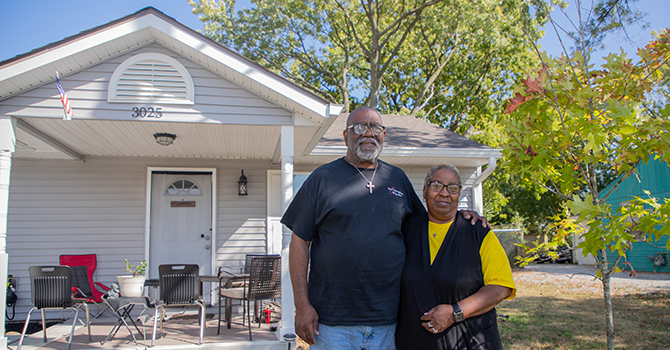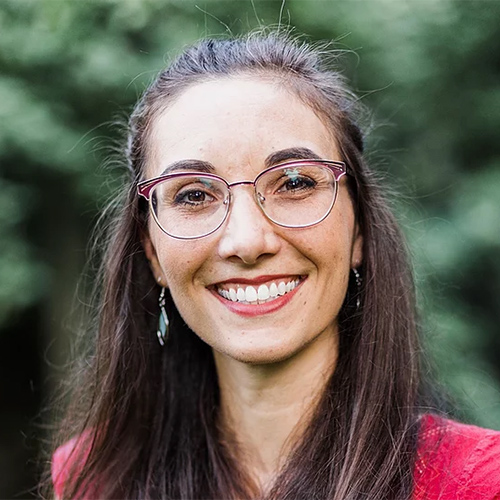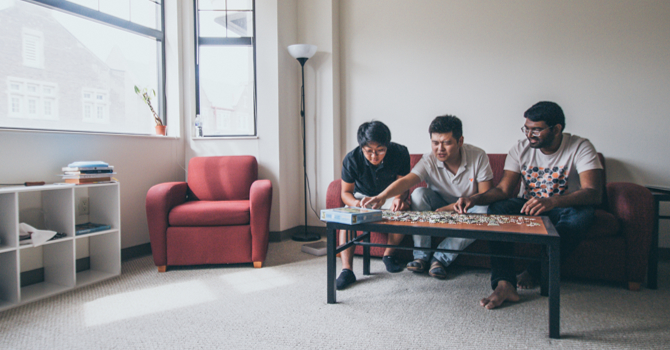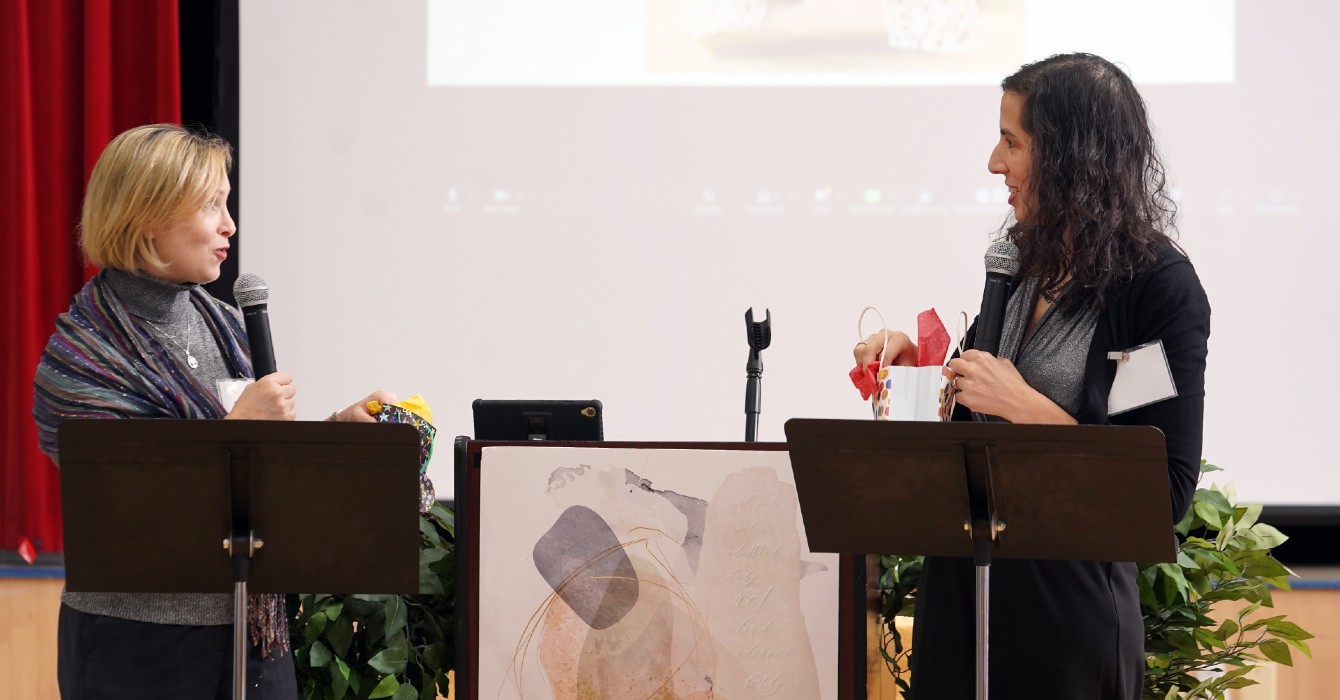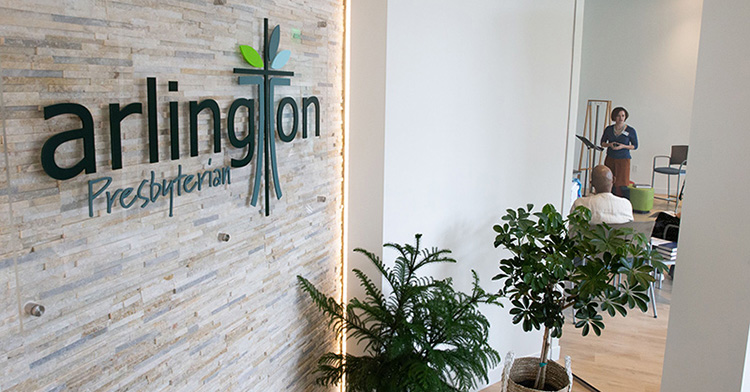After signing the deed to their new three-bedroom home, Steven and Harriet Gaither decided to keep the moving process simple. That first day, Steven focused on assembling their bedroom furniture, and nothing else.
Later that night, as the retired couple marveled at their first home purchase, Harriet whispered to Steven, “Do you hear that?”
He turned to her. “Hear what?”
Harriet once again prodded him: “You hear it?” Then, after a pause: “Quiet.”
They lay in each other’s arms, crying. It had seemed like an impossible dream -- the American dream, Steven said.
“We didn’t have no money. No money at all,” he said. He had been told by lenders to wait until his financial situation improved to buy a home.
Yet the Gaithers couldn’t see how waiting would make a difference. They had lived for more than nine years in public housing, where they could barely make ends meet.
Now, the Gaithers are able to sit on their own front porch with a clear view of a church that is restoring hope among residents in Arlington Woods, one of the most impoverished neighborhoods in Indianapolis.
Committed to giving back
Eastern Star Church, a Baptist church that describes itself as “one church in three locations,” has had a long history of supporting its neighbors in the 46218 ZIP code -- an area where nearly 40% of residents live at or below the poverty line.
Here, the average household income is $26,400, compared with $44,900 for the whole of Marion County, Indiana.
During its 99-year history, the church has earned a reputation for helping thousands of disadvantaged people throughout the city through donations of food, clothing, services, funds and scholarships totaling in the millions.
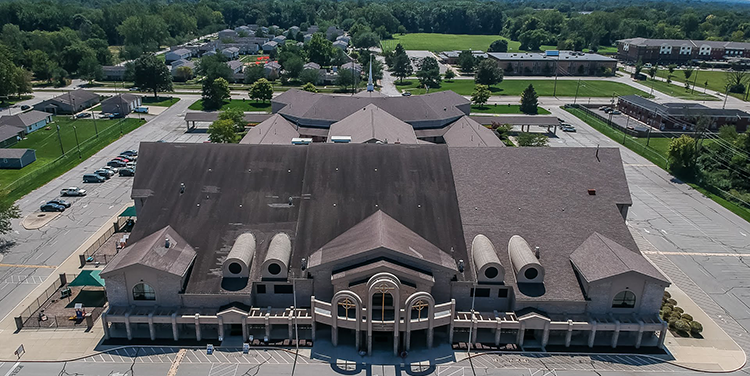
A public school across the street from the church is one of the recipients of that generosity. Recently, the church donated $200,000 for computer equipment to ensure that students have access to technology. Church members mentor students weekly, and they have donated uniforms and partnered with a local restaurant, Cafe Patachou, to provide students with healthy after-school meals four days a week.
“It’s a great partnership,” said Tihesha Henderson, the principal of Arlington Woods Elementary School, where more than 80% of students qualify for free lunch. “Our students now have iPads and laptops. It has greatly added to student engagement.”
During the past two years, the church has made an unprecedented investment in the 46218 community -- setting into motion the ROCK Initiative, which stands for Renewing Our Community for the Kingdom.
It includes the development of a small neighborhood of new three-bedroom houses, like the one purchased by the Gaithers, and Sunstone at Arlington Woods, a mixed-use building that features 25 apartments and retail space occupied by a credit union, a grocery store, a hair salon and social services providers. Boarded-up and dilapidated houses in the neighborhood have been renovated as well.
How can you make an investment in your community?
The ROCK Initiative also funds reentry plans for ex-offenders who receive the one-on-one attention they need to interview for jobs and have their records expunged. They, along with others in the neighborhood and throughout the city, can access social services through the ROCK.
In all, more than $5 million has been poured into the community since the ROCK Initiative was launched in 2017, primarily through private donations from church members. Long-term plans are underway to invest $30 million more into the neighborhood, including the development of a youth center and 25 more homes.
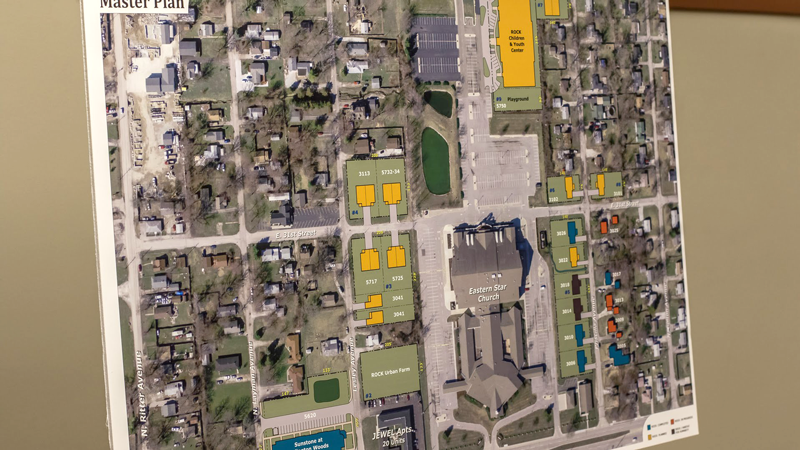
Following a vision and a commitment
This comprehensive investment in Arlington Woods started with a vision by Jeffrey A. Johnson Sr., the senior pastor at Eastern Star Church.
The financial means to make it all possible started with an invaluable lesson Johnson learned more than 30 years ago. He has passed it on to congregants in the form of the Financial Freedom Institute -- an intensive course on money management offered by the church.
Many members are now able to give generously because they’re not saddled with debt, Johnson said.
“These are people who love God, manage their money the way Scripture teaches, and give to do the work. That’s how we were able to do this,” he said.
“The Bible gives us the principles for how we should manage our money,” Johnson said. “The Scripture is the authority for the life of the believer, the life of the church, and when we line our lives up to what God’s word is saying, it’s going to make a big difference in our lives.”
Johnson, who grew up in the Arlington Woods community, was only 24 when he first assumed the position of lead pastor at the established church on the city’s Eastside. And he was 27 when he first learned about personal money management during a conference session led by Dr. Timothy J. Winters, the longtime pastor of Bayview Baptist Church in San Diego, who died in 2014.
It was only a 1 ½-hour lesson, but Johnson and his wife, Sharon, were quick to apply the principles they learned. Johnson also started reading books about money management, picking up a new one every month.
After four years, the young couple was completely debt-free -- having paid off school loans, car loans and credit card debt.
How can you use important lessons from your life to teach others?
Experiencing the freedom that comes from living without debt, Johnson began to understand the Scripture about the “borrower being a slave to the lender” (Proverbs 22:7), he said.
“It helped my marriage, because most of our arguments were about money, … what to do with it and what not to do with it -- how are we going to pay these bills,” he said.
Johnson then committed to teaching church leaders and members the same principles in what eventually became the Financial Freedom Institute.
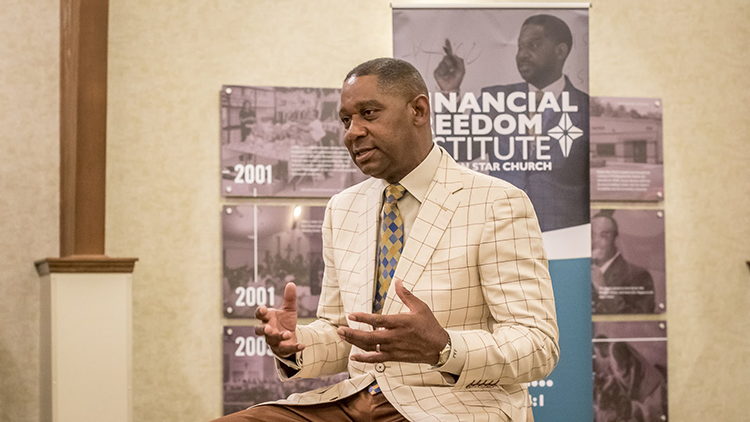
“I began to preach and teach about working hard, giving to God, paying yourself, living within your means -- the principles we find in the Scripture,” he said.
Living financially free
Money management wasn’t always a welcome lesson in the church, though.
“There were some people who believed we shouldn’t talk about money,” Johnson said. “People have issues with it. But it’s in God’s word. Jesus spoke 20 times more about money than he did about fasting and prayer. If Jesus spends that much time on it, then as a minister of the gospel of Jesus Christ, I think I need to spend significant time on it.”
Johnson estimates that about 30% of the church’s 10,000 active members, some of whom attend services at its two other locations in more affluent neighborhoods, are committed to tithing -- enough to make a significant impact in helping their disadvantaged neighbors.
What uncomfortable topics could lead to unexpected growth?
Eastern Star Church member Juanita Gordon, together with her husband, Courtney Gordon, was among the church members who applied the principles learned as part of the Financial Freedom Institute to become debt-free.
Before then, the thought hadn’t occurred to her to live without debt.
“We had good credit, but good credit was a curse to me, because I used it,” she said. “My mindset was that you would die with debt. We end up doing the very things we see our parents do. It’s bondage.”
Seeking partners in community revitalization
From the start, Johnson and other church leaders were determined to partner with others, particularly those living in the community, in developing the ROCK Initiative. As a result, their initial planning committee included Arlington Woods residents, deputy mayors, police officers, business owners, church members, elders, deacons and church staff.
“We all got together and began to brainstorm the plan,” he said.
A critical cornerstone of the plan was the ability of Eastern Star Church to donate large sections of the 100 acres it owns to the ROCK Initiative.
What are you willing to give -- and give up -- to help others?
To do this, they scrapped earlier plans that had been made to expand the campus to accommodate its growing membership. With more than 3,000 people attending services through livestreaming and other digital channels, the church decided instead to repurpose land in behalf of the surrounding community.
Kelly DeWald was among the first residents to move into the Sunstone at Arlington Woods apartment complex. Although the single mom and her three children aren’t members of Eastern Star Church, they feel that the church is a part of their community, she said.

“There’s too many churches that can’t get outside their own walls. They’re comfortable with each other inside their own building,” DeWald said. “Eastern Star Church is the exact opposite. They have figured out exactly what the church is supposed to do in a community -- and that’s get out in the community and help people.”
How can your church find partners to reach beyond its walls?
Priscilla Keith, the executive director of community benefit at Community Health Network, said the ROCK Initiative is an ideal partnership because of its focus on providing health services and healthy food options through the Sunstone development’s ROCK Fresh Market.
“Arlington Woods is in a food desert,” said Keith, noting that diabetes-related complications are among the top causes of emergency room visits at nearby Community Hospital East. “And food is medicine. It’s so important. You can use it to manage chronic disease.”
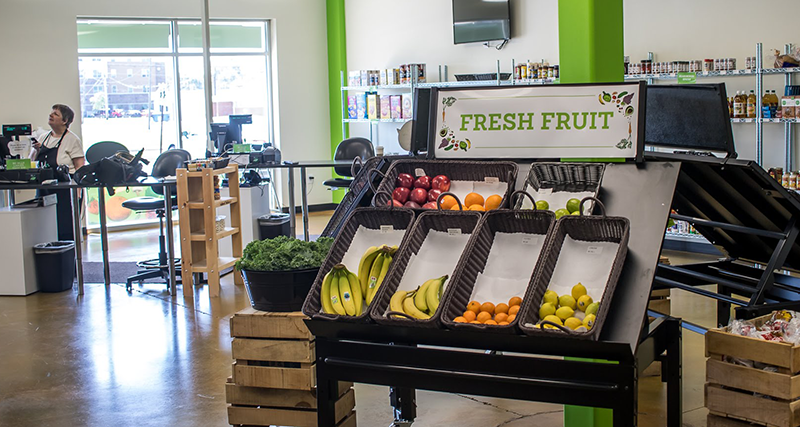
“Lack of healthy food options also can factor into educational performance,” Keith said. “If students are hungry, they can’t pay attention. We may say this child has ADHD when in fact the child is hungry. So that’s why we think it’s really, really important.”
Keith said the layers of help provided by Eastern Star Church -- from housing and food to access to social and behavioral health services -- is establishing a blueprint for others to follow.
“They’re addressing one block at a time,” she said. “By providing affordable housing, that’s a giant step. It’s critical.”
From there, the church looked around and addressed other problems -- lack of access to nutritious food and lack of access to social services.
“They stayed in the community; they stayed and tried to solve some of those problems,” she said.

Another community partner, Indianapolis Neighborhood Housing Partnership (INHP), has been instrumental in supporting affordable housing under the ROCK Initiative.
“From the beginning, it looked different. It was an ambitious plan,” said Robert Evans, the executive vice president of homeownership initiatives for INHP. “It was powerful, because it was a very comprehensive, layered approach to provide neighborhoods what they need at different levels.”
Such an approach has far-reaching benefits. “Everyone in the community is being recognized as valuable,” Evans said. “If you just provide resources for one of those needs, other parts of the community get left out.”
In addition to providing new homes at affordable rates, the initiative offers assistance for those who want to rent and those who need their homes repaired. Those in need of social services, quality education and healthy food options are receiving help as well, Evans said.
The initial investment in the 46218 community by Eastern Star Church already has prompted additional investments in the neighborhood through partnerships with INHP, Habitat for Humanity, The Mind Trust, Financial Health Federal Credit Union, Community Health, Eskenazi Health and other organizations.
Evans predicts that the investment will continue to multiply, leading to more transformation for the neighborhood.
“This is a community that has a lot of pride and assets,” he said. “It’s wonderful to see Eastern Star work alongside the neighborhood and with the neighborhood to make a difference. You’re going to see further investments coming into this community -- not just Eastern Star and its partners.”
Alice Brooks, an active church member who has lived in the community since the 1960s, has seen the area undergo numerous transitions. When she first moved there, the neighborhood was thriving. “People were very cordial with one another. You knew your neighbors and you knew their kids. It was a very happy, comfortable place to live,” she said.
Over the decades, she observed the neighborhood’s decline. But she is once again filled with hope.
“When I think of all that Eastern Star Church does, I think it’s giving the community hope -- especially with the apartments and all the services available,” she said. “I certainly think there’s going to be a positive impact long term.”
Questions to consider
Questions to consider
- Eastern Star Church has made more than $5 million worth of investments in the 46218 area. How can you make an investment in your community?
- Johnson and his wife took financial lessons they had learned and helped the congregation learn about finances. How can you use important lessons from your life to teach others?
- Some people in Johnson's congregation were originally uncomfortable talking about money. What uncomfortable topics could lead to unexpected growth?
- Eastern Star Church scrapped building plans to invest in the community. What are you willing to give -- and give up -- to help others?
- Kelly DeWald, one of the first residents to move into the Sunstone at Arlington Woods, said that Eastern Star Church is a good example of a church that got outside its walls to help people in the community. How can your church find partners to reach beyond its walls?

